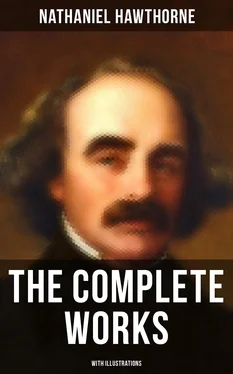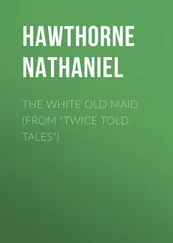A remarkable event of the third year of my Surveyorship — to adopt the tone of “P. P. “ — was the election of General Taylor to the Presidency. It is essential, in order to form a complete estimate of the advantages of official life, to view the incumbent at the incoming of a hostile administration. His position is then one of the most singularly irksome, and, in every contingency, disagreeable, that a wretched mortal can possibly occupy; with seldom an alternative of good on either hand, although what presents itself to him as the worst event may very probably be the best. But it is a strange experience, to a man of pride and sensibility, to know that his interests are within the control of individuals who neither love nor understand him, and by whom, since one or the other must needs happen, he would rather be injured than obliged. Strange, too, for one who has kept his calmness throughout the contest, to observe the bloodthirstiness that is developed in the hour of triumph, and to be conscious that he is himself among its objects! There are few uglier traits of human nature than this tendency — which I now witnessed in men no worse than their neighbours — to grow cruel, merely because they possessed the power of inflicting harm. If the guillotine, as applied to officeholders, were a literal fact, instead of one of the most apt of metaphors, it is my sincere belief that the active members of the victorious party were sufficiently excited to have chopped off all our heads, and have thanked Heaven for the opportunity! It appears to me — who have been a calm and curious observer, as well in victory as defeat — that this fierce and bitter spirit of malice and revenge has never distinguished the many triumphs of my own party as it now did that of the Whigs. The Democrats take the offices, as a general rule, because they need them, and because the practice of many years has made it the law of political warfare, which unless a different system be proclaimed, it was weakness and cowardice to murmur at. But the long habit of victory has made them generous. They know how to spare when they see occasion; and when they strike, the axe may be sharp indeed, but its edge is seldom poisoned with ill-will; nor is it their custom ignominiously to kick the head which they have just struck off.
In short, unpleasant as was my predicament, at best, I saw much reason to congratulate myself that I was on the losing side rather than the triumphant one. If, heretofore, I had been none of the warmest of partisans I began now, at this season of peril and adversity, to be pretty acutely sensible with which party my predilections lay; nor was it without something like regret and shame that, according to a reasonable calculation of chances, I saw my own prospect of retaining office to be better than those of my democratic brethren. But who can see an inch into futurity beyond his nose? My own head was the first that fell.
The moment when a man’s head drops off is seldom or never, I am inclined to think, precisely the most agreeable of his life. Nevertheless, like the greater part of our misfortunes, even so serious a contingency brings its remedy and consolation with it, if the sufferer will but make the best rather than the worst, of the accident which has befallen him. In my particular case the consolatory topics were close at hand, and, indeed, had suggested themselves to my meditations a considerable time before it was requisite to use them. In view of my previous weariness of office, and vague thoughts of resignation, my fortune somewhat resembled that of a person who should entertain an idea of committing suicide, and although beyond his hopes, meet with the good hap to be murdered. In the Custom-House, as before in the Old Manse, I had spent three years — a term long enough to rest a weary brain: long enough to break off old intellectual habits, and make room for new ones: long enough, and too long, to have lived in an unnatural state, doing what was really of no advantage nor delight to any human being, and withholding myself from toil that would, at least, have stilled an unquiet impulse in me. Then, moreover, as regarded his unceremonious ejectment, the late Surveyor was not altogether ill-pleased to be recognised by the Whigs as an enemy; since his inactivity in political affairs — his tendency to roam, at will, in that broad and quiet field where all mankind may meet, rather than confine himself to those narrow paths where brethren of the same household must diverge from one another — had sometimes made it questionable with his brother Democrats whether he was a friend. Now, after he had won the crown of martyrdom (though with no longer a head to wear it on), the point might be looked upon as settled. Finally, little heroic as he was, it seemed more decorous to be overthrown in the downfall of the party with which he had been content to stand than to remain a forlorn survivor, when so many worthier men were falling: and at last, after subsisting for four years on the mercy of a hostile administration, to be compelled then to define his position anew, and claim the yet more humiliating mercy of a friendly one.
Meanwhile, the press had taken up my affair, and kept me for a week or two careering through the public prints, in my decapitated state, like Irving’s Headless Horseman, ghastly and grim, and longing to be buried, as a political dead man ought. So much for my figurative self. The real human being all this time, with his head safely on his shoulders, had brought himself to the comfortable conclusion that everything was for the best; and making an investment in ink, paper, and steel pens, had opened his long-disused writing desk, and was again a literary man.
Now it was that the lucubrations of my ancient predecessor, Mr. Surveyor Pue, came into play. Rusty through long idleness, some little space was requisite before my intellectual machinery could be brought to work upon the tale with an effect in any degree satisfactory. Even yet, though my thoughts were ultimately much absorbed in the task, it wears, to my eye, a stern and sombre aspect: too much ungladdened by genial sunshine; too little relieved by the tender and familiar influences which soften almost every scene of nature and real life, and undoubtedly should soften every picture of them. This uncaptivating effect is perhaps due to the period of hardly accomplished revolution, and still seething turmoil, in which the story shaped itself. It is no indication, however, of a lack of cheerfulness in the writer’s mind: for he was happier while straying through the gloom of these sunless fantasies than at any time since he had quitted the Old Manse. Some of the briefer articles, which contribute to make up the volume, have likewise been written since my involuntary withdrawal from the toils and honours of public life, and the remainder are gleaned from annuals and magazines, of such antique date, that they have gone round the circle, and come back to novelty again. Keeping up the metaphor of the political guillotine, the whole may be considered as the POSTHUMOUS PAPERS OF A DECAPITATED SURVEYOR: and the sketch which I am now bringing to a close, if too autobiographical for a modest person to publish in his lifetime, will readily be excused in a gentleman who writes from beyond the grave. Peace be with all the world! My blessing on my friends! My forgiveness to my enemies! For I am in the realm of quiet!
The life of the Custom-House lies like a dream behind me. The old Inspector — who, by-the-bye, I regret to say, was overthrown and killed by a horse some time ago, else he would certainly have lived for ever — he, and all those other venerable personages who sat with him at the receipt of custom, are but shadows in my view: white-headed and wrinkled images, which my fancy used to sport with, and has now flung aside for ever. The merchants — Pingree, Phillips, Shepard, Upton, Kimball, Bertram, Hunt — these and many other names, which had such classic familiarity for my ear six months ago, — these men of traffic, who seemed to occupy so important a position in the world — how little time has it required to disconnect me from them all, not merely in act, but recollection! It is with an effort that I recall the figures and appellations of these few. Soon, likewise, my old native town will loom upon me through the haze of memory, a mist brooding over and around it; as if it were no portion of the real earth, but an overgrown village in cloudland, with only imaginary inhabitants to people its wooden houses and walk its homely lanes, and the unpicturesque prolixity of its main street. Henceforth it ceases to be a reality of my life; I am a citizen of somewhere else. My good townspeople will not much regret me, for — though it has been as dear an object as any, in my literary efforts, to be of some importance in their eyes, and to win myself a pleasant memory in this abode and burial-place of so many of my forefathers — there has never been, for me, the genial atmosphere which a literary man requires in order to ripen the best harvest of his mind. I shall do better amongst other faces; and these familiar ones, it need hardly be said, will do just as well without me.
Читать дальше












